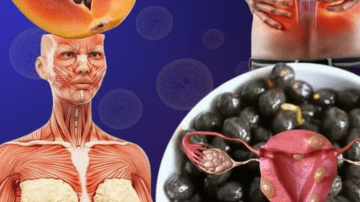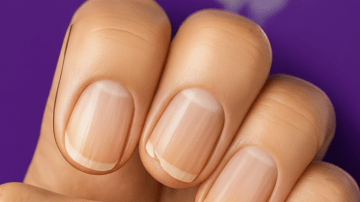You’re constantly searching for the nearest restroom. It’s an inconvenience, a disruption, and perhaps, a source of worry. The frequency of your urination—a symptom often dismissed as trivial—is actually a profound biological signal, telling you a complete story about the fluid dynamics, hormonal balance, and structural health inside your body.
Urinating several times throughout the day is the essential way your body manages waste and fluid levels. However, when this need accelerates suddenly, becomes extreme, or starts waking you up at night (a condition known as nocturia), it’s a critical sign that your body’s delicate equilibrium is shifting. Ignoring persistent, frequent urination (polyuria) can mean overlooking a range of issues, from simple lifestyle factors to serious chronic diseases.
It’s time to stop normalizing excessive bathroom breaks. We will explore six compelling reasons behind your increased urgency, what each one indicates about your health, and the empowered steps you can take to regain control and balance.
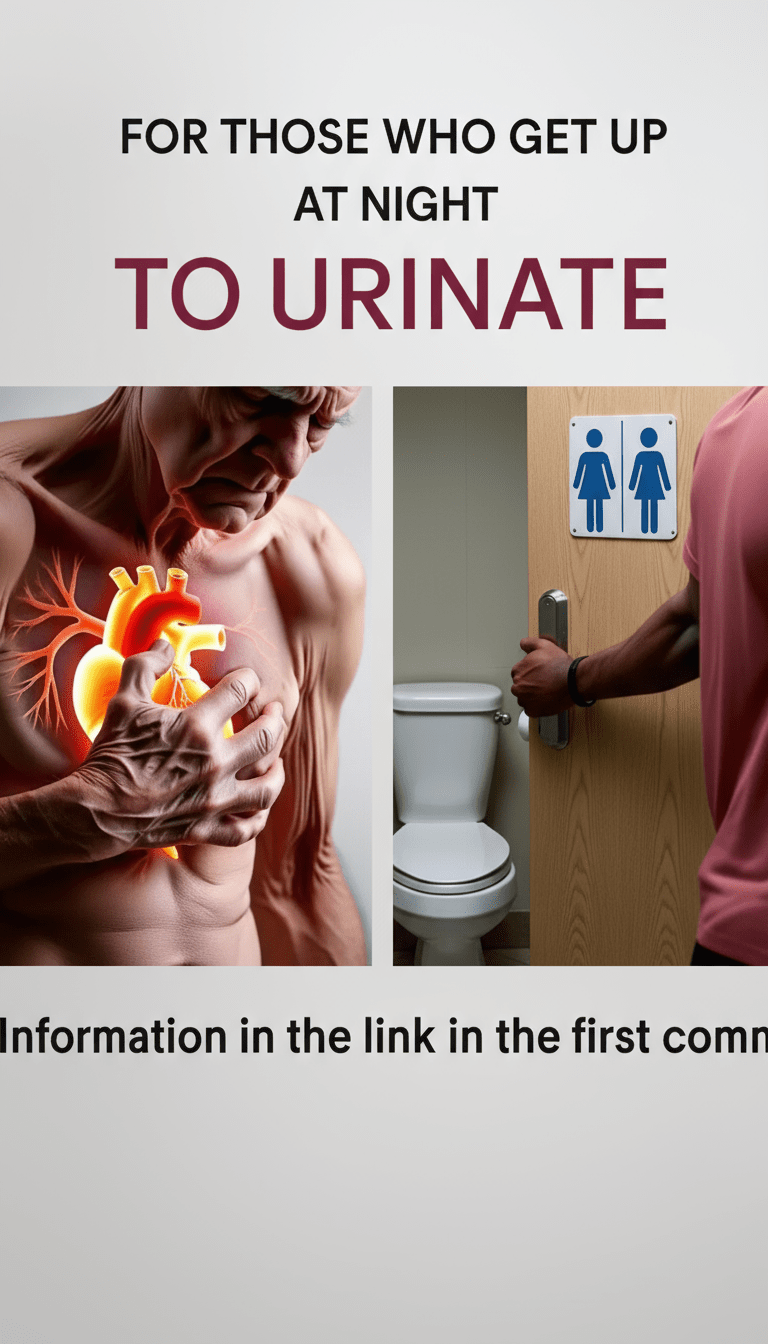
💧 REASON 1: EXCESSIVE FLUID INTAKE (AND HIDDEN DIURETICS)
This is the most common and often the simplest explanation. The basic function of your kidneys is to filter waste, and the more fluid you consume, the more urine they must produce to maintain fluid homeostasis.
The Diuretic Culprits
- Caffeine: Beverages like coffee and tea contain caffeine, a well-known diuretic that accelerates kidney function and increases urine production.
- Alcohol: Alcohol inhibits the release of antidiuretic hormone (ADH), leading the kidneys to excrete more water than they should.
- Sugary and Soft Drinks: High concentrations of sugar can also slightly increase fluid movement through the kidneys.
Actionable Steps
- Track and Adjust: For a few days, meticulously track all your fluid intake, including diuretic beverages. You might be surprised by your actual consumption levels.
- Timing is Key: Limit diuretic beverages in the late afternoon and evening to prevent nocturia (waking up to urinate).
- Find Your Balance: While staying hydrated is crucial, excessive consumption beyond what your body needs can unnecessarily stress the bladder. Aim for personalized hydration based on your activity and climate.
🦠 REASON 2: A URINARY TRACT INFECTION (UTI)
A Urinary Tract Infection (UTI) is one of the most prevalent causes of sudden, frequent urination, particularly in women, though men are not immune.
The Mechanism of Irritation
When bacteria enter the urinary system and multiply, they inflame and irritate the lining of the bladder (cystitis). This inflammation tricks the bladder’s stretch receptors into sending constant signals to the brain that it needs to be emptied, even when it contains very little urine. This results in intense, frequent urgency.
Key Supporting Symptoms
- Painful Urination (Dysuria): A distinct burning or stinging sensation upon voiding.
- Cloudy or Odorous Urine: Visible changes in the urine itself.
- Lower Abdominal Discomfort: Pressure or mild pain in the pelvic region.
Actionable Steps
- See a Doctor Immediately: If you suspect a UTI, prompt medical attention is necessary. Antibiotics are typically required to eliminate the bacteria.
- Hydration Support: While waiting for treatment, continue to drink plenty of water to help flush the bacteria from the urinary tract.
🍬 REASON 3: DIABETES MELLITUS (HIGH BLOOD SUGAR)
Frequent urination, especially when accompanied by excessive thirst (polydipsia) and unexplained weight loss, is often one of the cardinal and earliest indicators of Diabetes Mellitus (Type 1 or Type 2).
The Kidney Overload
When blood sugar (glucose) levels become chronically too high, the kidneys attempt to work overtime to filter and excrete the excess sugar. Glucose is osmotically active, meaning that as the kidneys pull glucose out of the blood and into the urine, they simultaneously draw large amounts of water along with it.
- Result: Increased urine output and a relentless need to urinate.
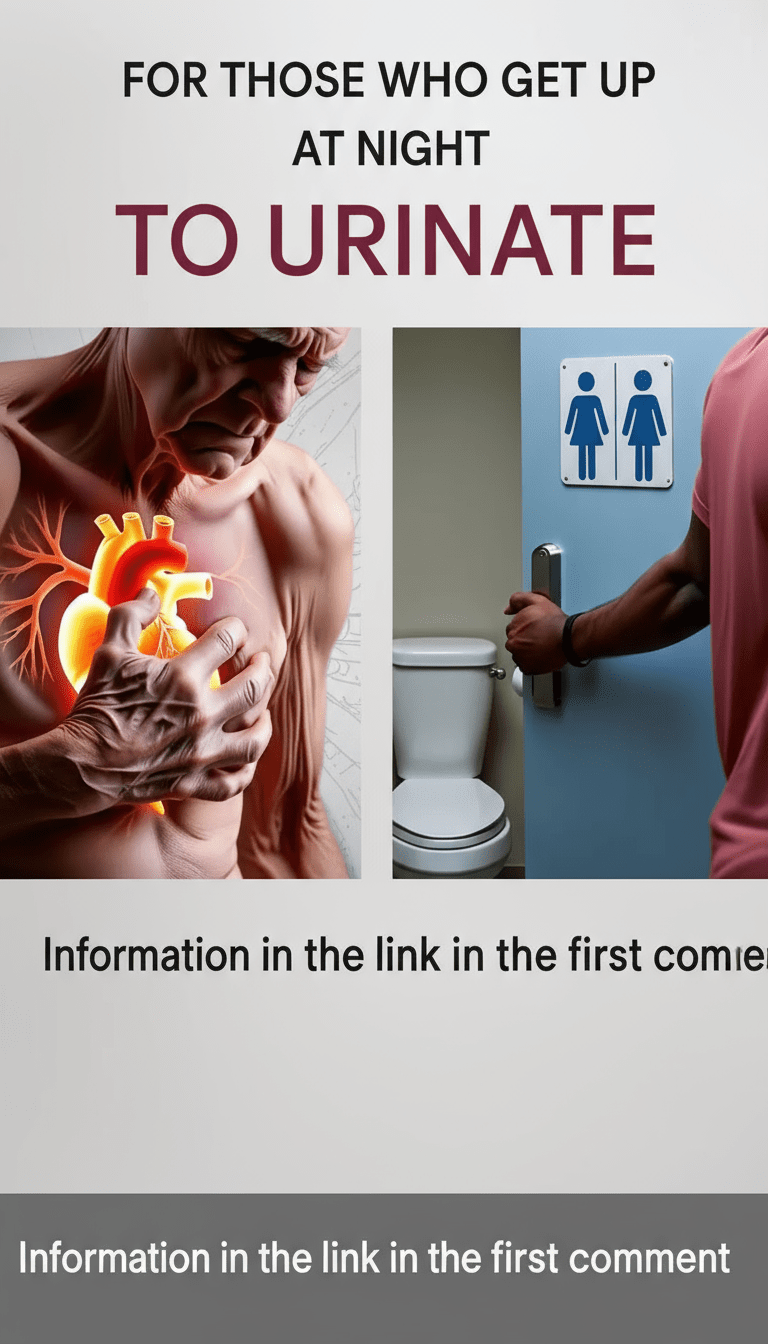
Critical Warning Signs
- Persistent Fatigue: Due to poor cell energy uptake.
- Increased Hunger: Cells are starved of glucose energy.
- Blurred Vision and Slow Wound Healing.
Actionable Steps
- Get Screened: If you exhibit these symptoms, prioritize getting your blood sugar levels checked immediately.
- Early Management: Early diagnosis and proper management, often through dietary adjustments and medication, are vital for preventing severe complications.
⚖️ REASON 4: DIABETES INSIPIDUS (A HORMONE IMBALANCE)
Do not confuse this with Diabetes Mellitus. Diabetes Insipidus is a rare but entirely different condition related to the body’s water balance, specifically involving the Antidiuretic Hormone (ADH), or vasopressin.
Hormonal Dysfunction
This disorder occurs either because the body does not produce enough ADH (Central DI) or because the kidneys do not respond properly to it (Nephrogenic DI). ADH’s job is to tell the kidneys to hold onto water.
- Result: Without ADH regulating water retention, the kidneys produce massive amounts of dilute urine, leading to extreme and persistent thirst, constant urination, and a high risk of dehydration.
Actionable Steps
- Endocrinologist Consultation: This condition requires specialist medical attention. An endocrinologist (hormone specialist) or other healthcare professional must perform specific tests to confirm the diagnosis.
- Treatment Focus: Treatment usually involves replacing the deficient hormone or addressing the underlying kidney issue to restore normal water balance.
👴 REASON 5: PROSTATE PROBLEMS (SPECIFIC TO MEN)
For men, particularly those over the age of 50, frequent urination is frequently a signal of an enlarged prostate, known as Benign Prostatic Hyperplasia (BPH).
The Mechanical Blockage
The prostate gland is located just below the bladder and encircles the urethra (the tube carrying urine out). As the prostate enlarges with age, it physically presses against the urethra, partially blocking the outflow of urine.
- Symptoms: This pressure leads to bladder wall irritation and an inability to fully empty the bladder, causing men to feel the need to urinate more often (especially at night). Other signs include a weak or interrupted stream.
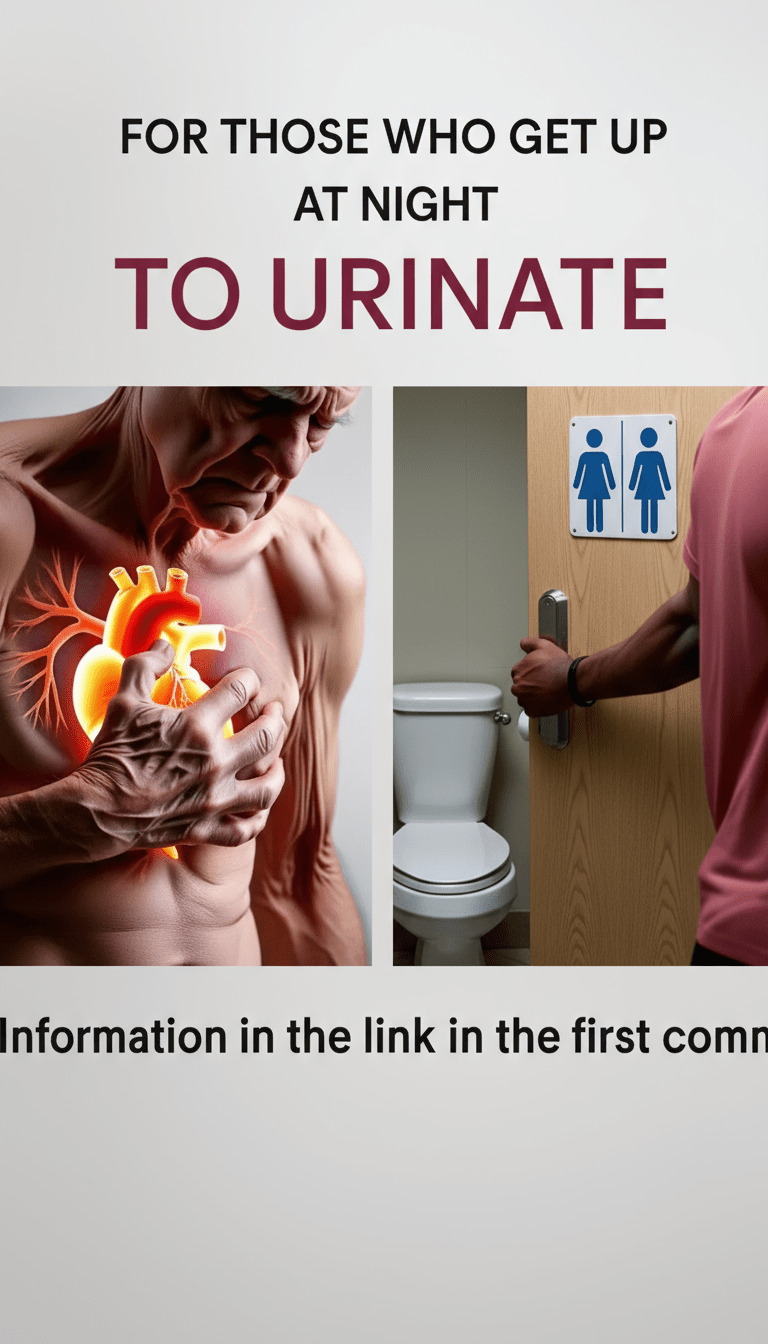
Actionable Steps
- Urological Check-up: If you are a man experiencing these symptoms, schedule a check-up with a doctor or urologist.
- Treatment Options: Effective treatments are available, ranging from lifestyle modifications and medications to minimally invasive procedures, all aimed at improving urinary function and reducing bothersome symptoms.
🧠 REASON 6: CHRONIC STRESS AND ANXIETY
Your emotional state has a powerful, direct influence on your bladder. Persistent stress and anxiety can lead to what is sometimes called “nervous urination.”
The Nervous System Connection
When you are stressed, your body releases hormones (like adrenaline) that activate the “fight or flight” nervous system. This activation can increase the sensitivity of the bladder muscles and create a constant, overriding sense of urgency, even when the bladder is only minimally full.
- Common Scenarios: This is frequently noticed before public speaking, exams, or during periods of chronic high-level anxiety.
Actionable Steps
- Mind-Body Techniques: Implement daily relaxation practices such as deep breathing exercises, meditation, or mindfulness.
- Lifestyle Balance: Ensure you are getting adequate sleep and regular physical activity, as both are foundational to reducing systemic anxiety and normalizing nervous system responses.
🛑 WHEN FREQUENT URINATION DEMANDS A DOCTOR’S VISIT
While many causes are manageable at home, certain symptoms accompanying frequent urination are immediate red flags requiring professional medical evaluation:
- Pain or Burning (Dysuria) during urination.
- Blood in your urine (hematuria).
- Unexplained Thirst or Persistent Fatigue (potential diabetes).
- Fever or Chills (potential kidney infection).
- Sudden Incontinence (trouble controlling your bladder).
Your healthcare provider can utilize diagnostic tools, including urine analysis, blood work, or imaging, to precisely determine the cause and guide you toward the correct treatment.
🔑 FINAL THOUGHTS: TAKE CONTROL OF YOUR URINARY HEALTH
Your urinary habits are a reliable barometer of your internal health and lifestyle. Changes in frequency can be as simple as an extra cup of coffee or as complex as an underlying endocrine disorder.
The key to better health is listening to your body. By recognizing these six common reasons and taking prompt, empowered action—whether that means reducing diuretic intake, managing stress, or seeking a timely diagnosis—you can improve your urinary function, eliminate inconvenience, and safeguard your overall well-being.
Would you like to explore proven, gentle relaxation techniques that can help manage stress and reduce nervous urination?



